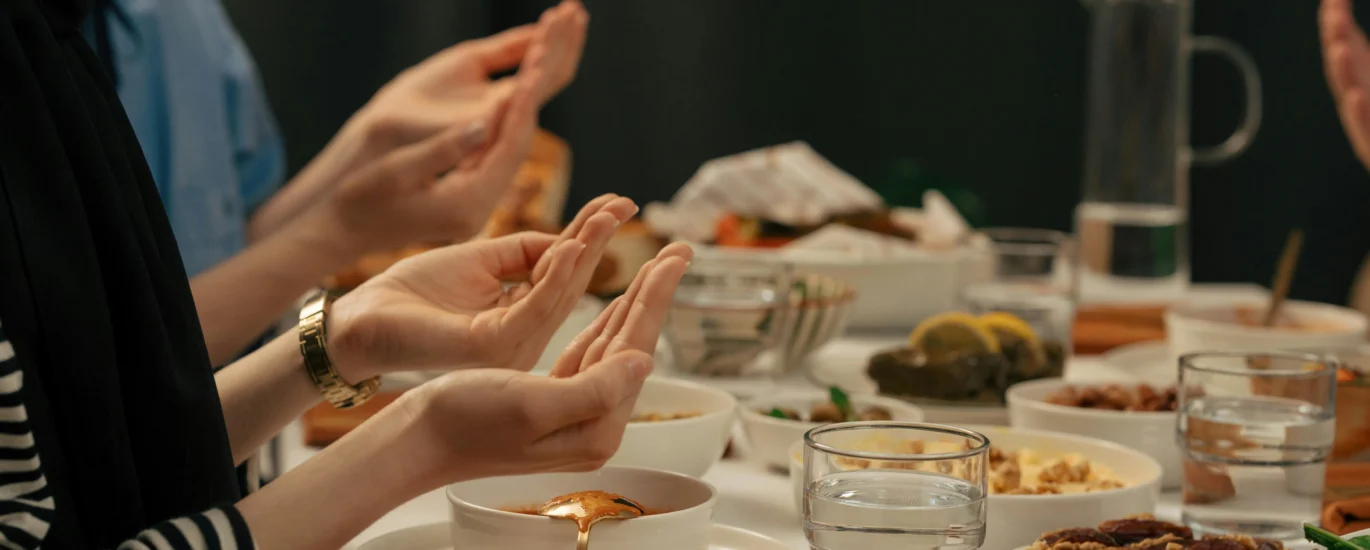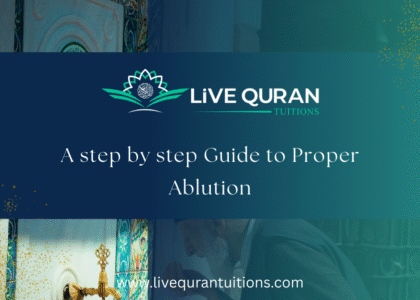Ramadan, the ninth month of the Islamic calendar, is a time of immense spiritual growth, self-discipline, and worship. Muslims worldwide observe fasting during this holy month, reflecting on their relationship with Allah (SWT) and seeking His forgiveness. One of the most beautiful ways to enhance your Ramadan experience is through the power of dua (supplication).
This guide explores some of the most meaningful duas for Ramadan, their significance, and how to incorporate them into your daily acts of worship.
The Importance of Duas in Ramadan
Dua is a profound act of worship that connects a believer directly with Allah (SWT). Ramadan is a special time to make dua, as Allah (SWT) promises to respond to His servants:
“And when My servants ask you, [O Muhammad], concerning Me – indeed I am near. I respond to the invocation of the supplicant when he calls upon Me.” (Surah Al-Baqarah, 2:186)
In Ramadan, the gates of mercy and forgiveness are wide open. The Prophet Muhammad (PBUH) emphasized the significance of dua, saying:
“The supplication of a fasting person at the time of breaking the fast is never rejected.” (Ibn Majah 1753)
Essential Duas for Ramadan
Below are some vital duas to incorporate into your Ramadan worship:
1. Dua for Starting the Fast (Suhoor)
Before beginning your fast, recite the following dua for fasting:
“Wa bisawmi ghadinn nawaiytu min shahri Ramadan.”
(I intend to keep the fast for tomorrow in the month of Ramadan.)
This simple fasting dua solidifies your intention, a crucial part of fasting.
2. Dua for Breaking the Fast (Iftar)
As you break your fast, recite this powerful supplication:
“Allahumma inni laka sumtu wa bika aamantu wa ‘alayka tawakkaltu wa ‘ala rizq-ika-aftartu.”
(O Allah! I fasted for You, and I believe in You, and I put my trust in You, and with Your sustenance, I break my fast.)
Dua of breaking fast reflects gratitude to Allah (SWT) for providing sustenance and strength throughout the day.
3. Dua for Forgiveness
Ramadan is a month of mercy and forgiveness. One of the most beloved duas of the Prophet (PBUH) is:
“Allahumma innaka ‘afuwwun, tuhibbul-‘afwa, fa’fu ‘anni.”
(O Allah, You are Forgiving and love forgiveness, so forgive me.) (Sunan At-Tirmidhi 3513)
Dua for laylatul qadr (Qiyam-ul-Lail)
Ramadan nights are filled with blessings, especially during the last ten nights when Laylatul Qadr (the Night of Decree) occurs. Allah (SWT) says:
“The Night of Decree is better than a thousand months.” (Surah Al-Qadr, 97:3)
Spending these nights in prayer, recitation of the Quran, and making heartfelt duas can multiply your rewards significantly.
Consider incorporating laylatul qadr dua such as:
“Rabbana taqabbal minna innaka Antas-Sami’ul-Aleem.”
(Our Lord, accept [this] from us. Indeed, You are the Hearing, the Knowing.) (Surah Al-Baqarah, 2:127)
Online Quran Teaching platforms often offer specialized courses during Ramadan to guide Muslims on how to perfect their prayers and duas for these sacred nights.
Duas for Fasting and Worship in the Quran
The Quran contains numerous supplications that are perfect for Ramadan worship. Here are a few examples:
1. Seeking Guidance and Mercy
“Our Lord, do not impose blame upon us if we forget or make a mistake. Our Lord, and lay not upon us a burden like that which You laid upon those before us. Our Lord, and burden us not with that which we have no ability to bear.” (Surah Al-Baqarah, 2:286)
This dua reminds us of Allah’s mercy and invites us to seek His support during hardships.
2. Seeking Protection from Hellfire
“Our Lord, avert from us the punishment of Hell. Indeed, its punishment is ever adhering.” (Surah Al-Furqan, 25:65)
During Ramadan, many Muslims intensify their focus on seeking protection from Hellfire, especially during Taraweeh prayers.
Duas for the Three Ashraas of Ramadan
The month of Ramadan is divided into three parts, or Ashraas, each consisting of 10 days. Each Ashraa has its own unique spiritual significance and associated dua. Embracing these duas can help you make the most of this sacred month.
- First Ashraa (Days 1–10): The Ashraa of Mercy
The first ten days of Ramadan focus on seeking Allah’s mercy (Rahmah). These days remind us of Allah’s infinite compassion and kindness.
Dua for the First Ashraa:
“Rabbighfir warham wa Anta khair-ur-raahimeen.”
(My Lord, forgive and have mercy, for You are the best of the merciful.) (Surah Al-Mu’minun, 23:118)
This dua reflects our humility as we seek Allah’s mercy to cleanse our hearts and guide us on the straight path.
- Second Ashraa (Days 11–20): The Ashraa of Forgiveness
The second ten days are dedicated to seeking Allah’s forgiveness (Maghfirah). These are days of repentance, where Muslims ask Allah (SWT) to forgive their sins, past and present.
Dua for the Second Ashraa:
“Astaghfirullaha rabbi min kulli zambin wa atoobu ilaih.”
(I seek forgiveness from Allah, my Lord, from every sin I committed, and I turn to Him in repentance.)
Making this dua sincerely with a repentant heart opens the doors to Allah’s boundless forgiveness.
- Third Ashraa (Days 21–30): The Ashraa of Salvation from Hellfire
The final ten days of Ramadan, which include Laylatul Qadr (the Night of Decree), are the most spiritually significant. These days focus on seeking protection from Hellfire and gaining closeness to Allah (SWT).
Dua for the Third Ashraa or dua for last 10 days of ramadan:
“Allahumma ajirni minan-naar.”
(O Allah, save me from the Hellfire.)
This simple yet powerful dua reflects the ultimate goal of every Muslim: attaining Allah’s pleasure and salvation in the Hereafter.
The Role of an Online Quran Academy in Enhancing Dua Knowledge
If you’re looking to deepen your understanding of Ramadan duas, enrolling in an Online Quran Academy can be a transformative experience. These academies offer expert guidance on Quranic recitation, Tafsir (interpretation), and memorization of essential duas.
Benefits of Learning Duas Through Online Quran Education:
- Expert Tutors: Learn from qualified teachers who specialize in Quranic studies.
- Flexible Schedules: Customize classes to fit your Ramadan routine.
- Global Accessibility: Join from anywhere in the world.
Platforms for Online Quran Teaching also provide courses tailored to families, ensuring that children and adults can learn together.
The Power of Dua During Laylatul Qadr
One of the most significant times to make dua is Laylatul Qadr. The Prophet Muhammad (PBUH) said:
“Whoever establishes the prayers on the night of Qadr out of sincere faith and hoping to attain Allah’s rewards, all his past sins will be forgiven.” (Sahih Bukhari 1901)
On this night, amplify your supplications with the previously mentioned dua for forgiveness:
“Allahumma innaka ‘afuwwun, tuhibbul-‘afwa, fa’fu ‘anni.”
Integrating Duas Into Your Ramadan Routine
Here are practical tips to make the most of your duas:
- Set Aside Quiet Time: Dedicate moments after Fajr and before Iftar for focused supplication.
- Use a Dua Journal: Write down personal duas and reflect on their meanings.
- Learn Through Online Quran Education: Enroll in courses that emphasize the meanings and proper recitations of duas.
Conclusion
Ramadan is a blessed opportunity to strengthen your connection with Allah (SWT) through fasting, worship, and heartfelt duas. By incorporating the supplications mentioned above and seeking guidance from resources like an Online Quran Academy, you can transform your Ramadan into a spiritually fulfilling journey.
Let this Ramadan be a month of reflection, gratitude, and unwavering faith. Remember the words of the Prophet (PBUH):
“Supplication is the essence of worship.” (Jami` at-Tirmidhi 3371)














